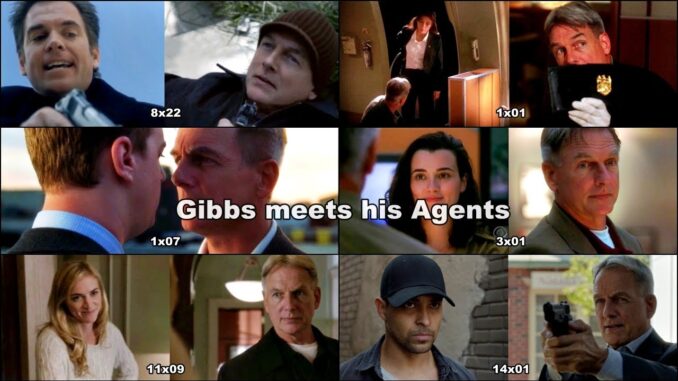
Gibbs and the Agents Who Walked Beside Him Then and Now
The basement workshop hums with the phantom whisper of sawdust and the ghost of a marine's unwavering gaze. Here, amidst the skeletal ribs of a nascent boat, lies the quiet heart of Leroy Jethro Gibbs. But the true masterpiece Gibbs crafted was never wood and steel; it was the people who walked beside him. More than just agents, they were the constellations he guided, the raw ore he forged, and the echoes of his rules that resonate, then and now, through the hallowed halls of NCIS.
In the "then" – the nascent years of the Major Case Response Team – to walk beside Gibbs was to undergo a rigorous, often unspoken, apprenticeship. Tony DiNozzo, initially a theatrical chameleon, learned the quiet power of observation, the intuitive gut-feel that Gibbs championed over mere procedure. Gibbs didn't lecture; he head-slapped, grunted approval, or simply fixed a stare that compelled deeper thought. He stripped away Tony's facade, revealing a fiercely loyal, deeply competent agent who learned to lead, not just perform. Ziva David, a skilled but emotionally scarred assassin, found in Gibbs an unlikely father figure, a man who saw beyond her training to her inherent sense of justice. He taught her trust, not as a weakness, but as the bedrock of a true team, slowly chipping away at her hardened exterior until she embraced the messy, vibrant humanity of her adopted family. And Timothy McGee, the tech-savvy rookie, blossomed under Gibbs’s gruff mentorship. From a nervous probie, he grew into a confident, resourceful field agent, learning that the most powerful tools weren't always digital; sometimes, they were a keen eye, a steadfast principle, and the courage to follow a hunch. These were not just subordinates; they were apprentices in the art of the human condition, molded by the silent architect of their professional souls.
As seasons turned and faces changed, the "now" of Gibbs's influence remained a potent, almost spiritual force. Even as the original constellation scattered to new orbits, the gravitational pull of Gibbs endured. Eleanor Bishop, initially a rigid analyst, shed her reliance on algorithms and embraced the chaotic, often intuitive, reality of field work, learning to listen to the whispers of a crime scene just as Gibbs taught his team to listen to their own inner voice. Nick Torres, a former undercover agent accustomed to lone wolf tactics, found a home and a purpose within the structured chaos of Gibbs’s team. Gibbs didn't break Torres's independence; he channeled it, showing him the strength in shared burden and the unspoken loyalty that binds a family forged in fire. And even when Gibbs himself retreated from the daily grind, the "now" is palpable. The rules, once grunted commandments, became internalized wisdom. A flash of DiNozzo's confident swagger, a quiet act of Ziva’s protective instinct, McGee's steady hand guiding new agents – these are not imitations, but reflections of the man who shaped them.
Today, with Alden Parker holding the reins, the team operates in the shadow of a living legend. Parker, while distinct in his approach, inherited a unit steeped in Gibbsian principles. The team still possesses an uncanny ability to connect disparate pieces, to trust their instincts over protocols, and to fiercely protect their own. These are not just standard operating procedures; they are the ingrained lessons from a man who understood that truth often lay beneath the surface, revealed only through patience, persistence, and a willingness to confront uncomfortable realities. The echoes of a head slap might be gone, but the reverberations of "Rule 1: Never screw over your partner" and "Rule 45: Clean up your own mess" resonate in every decision, every shared glance, every collective pursuit of justice.
Leroy Jethro Gibbs was more than a leader; he was a crucible. He didn't just walk beside his agents; he walked through them, leaving an indelible imprint of his stoicism, his principles, and his unwavering moral compass. "Then," they learned the steps in his wake, adapting to his rhythm. "Now," they dance to a beat he set, carrying his legacy not as a burden, but as the very heartbeat of NCIS. The ships he built in his basement may sail the open seas, but the true vessels of his craft – the agents he shaped – continue to navigate the complex currents of crime, forever guided by the steady hand of the man who walked beside them.